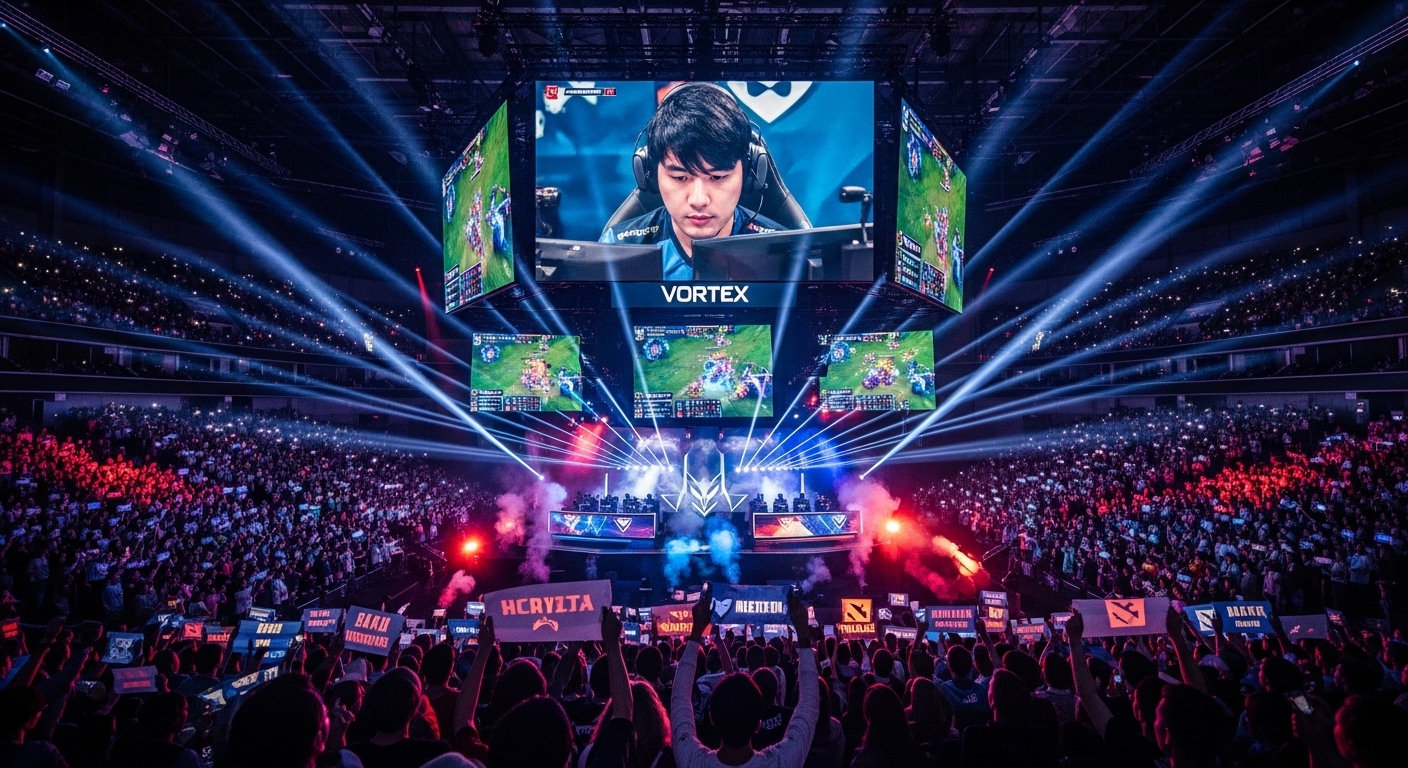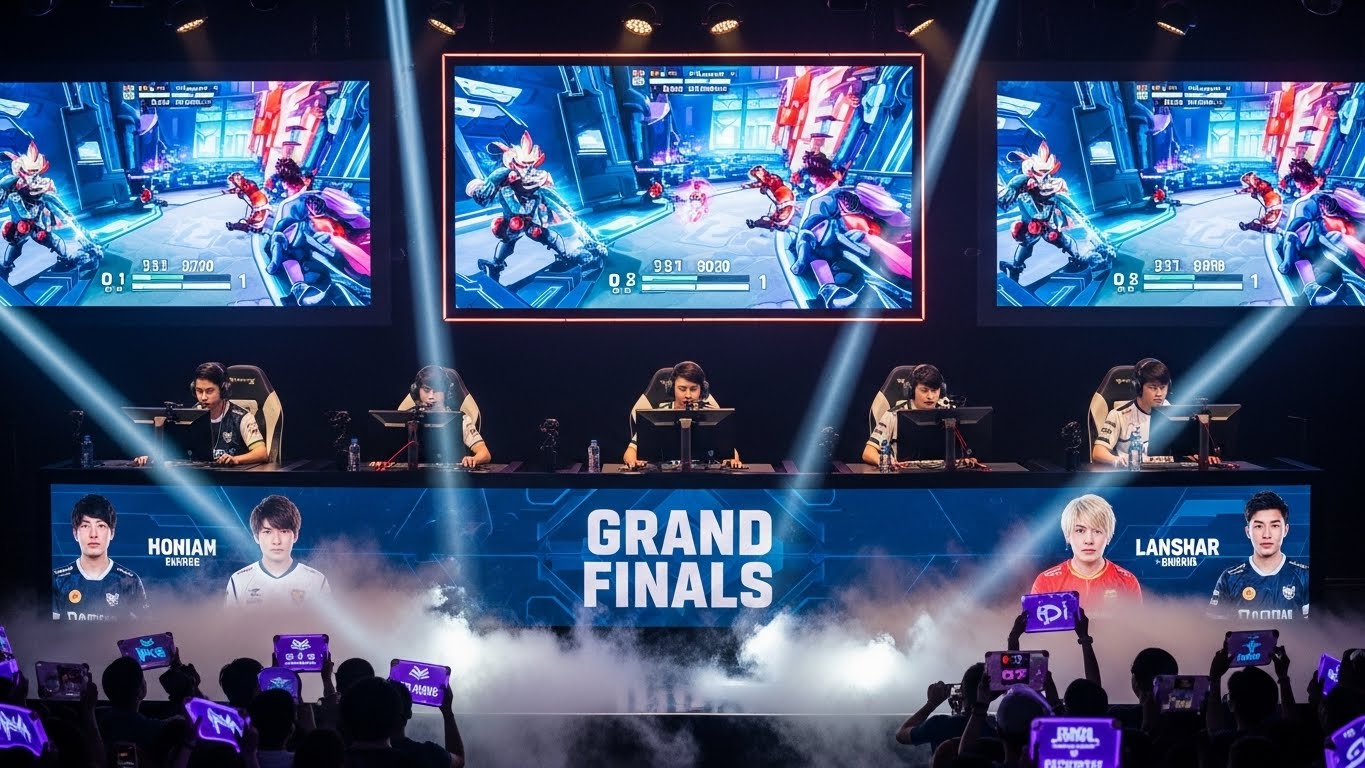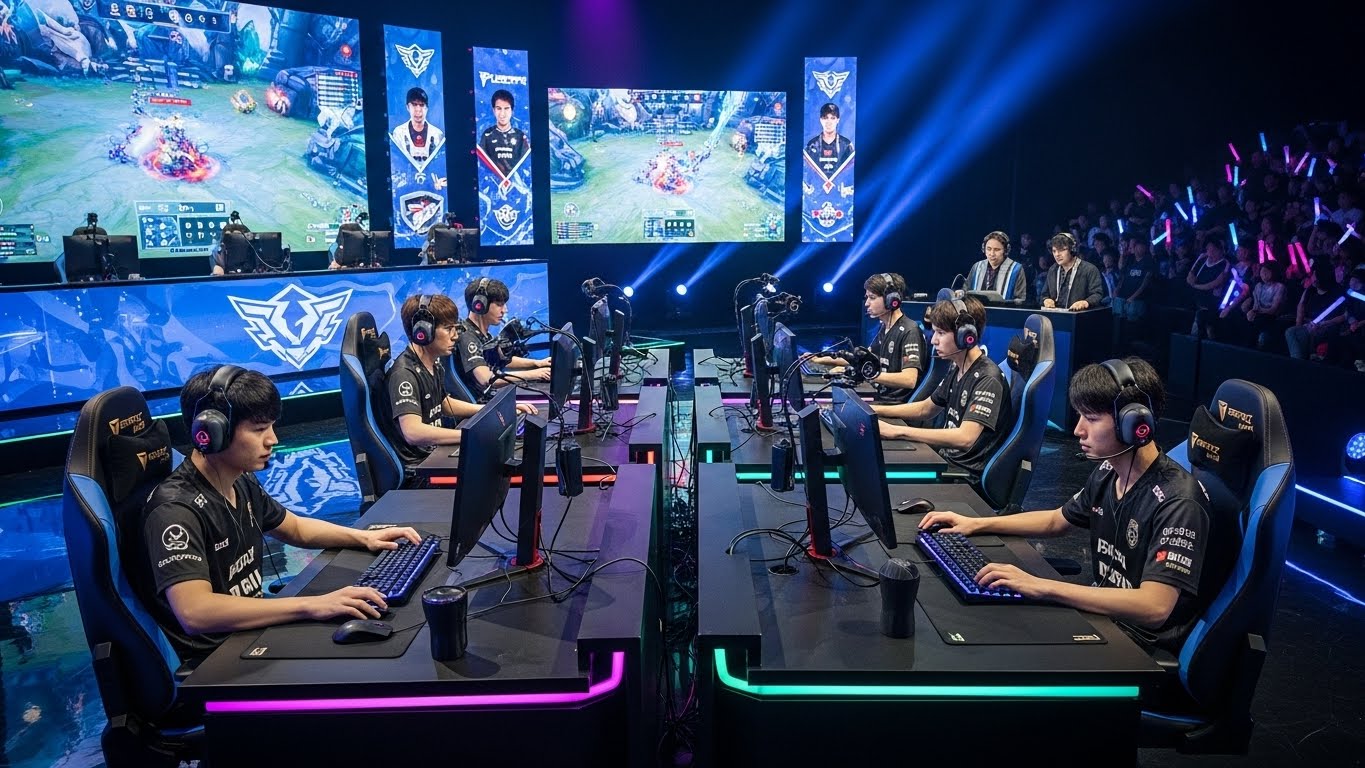Introduction
In the past few decades, the world has witnessed a remarkable transformation in how people engage with entertainment and competition. What was once considered a niche hobby confined to dimly lit gaming rooms has evolved into a billion-dollar global industry—Esports. Short for electronic sports, Esports refers to competitive video gaming where individuals or teams play against each other in organized tournaments, often in front of massive audiences both online and offline. The rise of Esports is not just a story of technology or gaming—it’s a revolution that bridges cultures, generations, and industries.
Esports has emerged as one of the most dynamic forms of modern entertainment, challenging traditional sports in terms of viewership, sponsorship, and fan engagement. From humble beginnings in the late 20th century to the massive international tournaments seen today, Esports represents a cultural shift that reflects the growing importance of digital spaces in our everyday lives.
The Origins of Esports
The origins of Esports can be traced back to the early 1970s when video games first appeared in universities and arcades. The first known organized gaming competition took place at Stanford University in 1972, featuring the game Spacewar! Students competed for a one-year subscription to Rolling Stone magazine. Although small in scale, this event marked the beginning of organized video game competitions.
By the 1980s, the gaming industry began to flourish with the rise of arcade classics like Pac-Man, Donkey Kong, and Space Invaders. Arcade tournaments attracted enthusiastic gamers who competed for high scores and recognition. One of the most famous early competitions was the Space Invaders Championship in 1980, organized by Atari, which drew over 10,000 participants across the United States.
The 1990s brought significant technological advancements, including personal computers and the internet. Multiplayer games such as Doom, Quake, and StarCraft laid the foundation for online competitive gaming. LAN (Local Area Network) parties became popular among enthusiasts who connected their computers to play together. This era also saw the emergence of professional gaming leagues in countries like South Korea, where Esports began to take root as a legitimate sport.
The Globalization of Esports
By the early 2000s, Esports started to gain international traction. Games like Counter-Strike, Warcraft III, and Halo created competitive ecosystems where professional players and teams could thrive. South Korea emerged as the heart of Esports culture, thanks to widespread broadband internet and government support for gaming. The Korean Esports Association (KeSPA), established in 2000, helped standardize competitions, player contracts, and broadcasting, turning gaming into a professional industry.
Meanwhile, Western countries began developing their own Esports scenes. Major tournaments such as the World Cyber Games (WCG) and the Electronic Sports World Cup (ESWC) became global events, drawing players from multiple continents. The rise of streaming platforms and video-sharing sites later in the decade, particularly YouTube and Twitch, transformed Esports into a form of mainstream entertainment accessible to millions worldwide.
Popular Games That Defined Esports
Certain titles have become synonymous with the Esports industry due to their competitive design, community support, and longevity.
1. League of Legends
Released in 2009 by Riot Games, League of Legends (LoL) quickly became one of the most played and watched Esports titles in history. Its annual World Championship attracts millions of viewers, with teams from Asia, Europe, and North America battling for glory and multimillion-dollar prize pools.
2. Dota 2
A spiritual successor to a Warcraft III mod, Dota 2 by Valve Corporation has one of the most lucrative prize pools in Esports history. The International, its premier tournament, has become a cultural event for fans and a showcase of elite-level strategy and teamwork.
3. Counter-Strike: Global Offensive
Since its release in 2012, CS:GO has been a cornerstone of competitive shooting games. Known for its simple yet deep mechanics, it remains a staple in Esports tournaments worldwide.
4. Fortnite
Epic Games’ Fortnite redefined the gaming landscape with its blend of building mechanics and battle royale gameplay. The Fortnite World Cup highlighted how quickly a new game can reach Esports prominence with the right community and developer support.
5. Valorant
A more recent addition to the Esports scene, Valorant blends elements of tactical shooters and hero-based gameplay. It has become a major competitive title, supported by organized leagues and regional competitions.
The Role of Streaming and Digital Media
The explosion of Esports is closely tied to the rise of streaming platforms. Twitch, YouTube Gaming, and Facebook Gaming have revolutionized how audiences consume competitive gaming content. Unlike traditional sports broadcasting, streaming allows for direct interaction between fans and players. Chat rooms, real-time reactions, and community-driven discussions create a more intimate and engaging experience.
Streaming has also made Esports accessible to a global audience. Fans no longer need to attend events in person to feel part of the excitement. They can follow their favorite teams, watch highlights, or learn from professional players from the comfort of their homes. For many young people, watching Esports has become as natural as watching football or basketball.
The Professional Esports Ecosystem
Behind every successful Esports event is a vast and complex ecosystem involving game developers, tournament organizers, sponsors, teams, players, and fans.
Game Developers: Companies like Riot Games, Valve, Blizzard, and Activision play crucial roles in shaping the competitive scene for their respective titles. They manage leagues, design updates to maintain balance, and invest in production quality.
Teams and Players: Professional Esports teams operate much like traditional sports clubs. They recruit talent, provide training facilities, and manage player contracts. Top-tier teams like T1, Fnatic, Team Liquid, and Cloud9 have global fanbases and are brands in their own right.
Sponsors and Brands: As Esports viewership has grown, so has corporate interest. Major brands from tech, energy drinks, fashion, and even automotive industries have invested heavily in Esports sponsorships, recognizing the massive youth demographic that follows gaming.
Tournament Organizers: Companies such as ESL, DreamHack, and Blast Premier organize global events with elaborate production values rivaling those of major sports broadcasts.
Fans and Communities: Esports fans are passionate, loyal, and deeply engaged. They follow players across multiple platforms, support their favorite teams through merchandise, and participate in online discussions and fan art.
The Economic Impact of Esports
The Esports industry has grown into a multi-billion-dollar economy. Revenue streams include sponsorships, advertising, media rights, ticket sales, and merchandise. Prize pools have reached staggering amounts, with The International alone offering tens of millions of dollars in winnings.
Esports has also created new job opportunities across multiple sectors. Beyond professional players, careers now exist in commentary, coaching, event management, broadcasting, marketing, and analytics. Cities across the world are investing in Esports arenas and training centers, viewing them as valuable hubs for tourism and youth engagement.
The Cultural Influence of Esports
Esports has transcended gaming culture to influence broader entertainment and media. Collaborations between gaming companies and musicians, fashion brands, and film studios have become increasingly common. Virtual concerts, in-game events, and crossover promotions demonstrate how Esports sits at the intersection of multiple creative industries.
Furthermore, Esports has helped redefine the image of gamers. No longer stereotyped as isolated individuals, professional gamers are now seen as dedicated athletes who train rigorously, maintain discipline, and perform under pressure. Schools and universities are even offering Esports scholarships and degrees, recognizing the industry’s academic and professional potential.
Challenges Faced by the Esports Industry
Despite its impressive growth, Esports faces several challenges that could shape its future.
1. Player Burnout and Mental Health:
Professional gaming demands long hours of practice and constant competition, leading to stress, fatigue, and mental health struggles among players. Organizations are now investing in wellness programs to support their athletes.
2. Regulation and Governance:
Unlike traditional sports with centralized governing bodies, Esports remains fragmented. Each game developer sets its own rules, creating inconsistencies in player rights, contracts, and tournament standards.
3. Cheating and Fair Play:
The use of unauthorized software, account boosting, and match-fixing scandals have occasionally tarnished Esports’ reputation. Strengthening security and enforcing ethical standards are ongoing challenges.
4. Inclusivity and Diversity:
While the Esports community is global, representation remains uneven. Female players and marginalized groups continue to face barriers to participation. Many organizations are now promoting diversity initiatives to foster a more inclusive environment.
5. Sustainability and Monetization:
Although Esports has massive audiences, converting viewership into consistent revenue remains a complex issue. Balancing free access with profitable models is key for long-term stability.
Esports and Education
An interesting development in recent years is the integration of Esports into education. Schools and universities have started recognizing the benefits of competitive gaming beyond entertainment. Esports encourages teamwork, strategic thinking, communication, and problem-solving—skills that are highly valuable in the modern workplace.
Some institutions now offer dedicated Esports programs, scholarships, and degrees focused on game design, event management, and digital marketing. This academic recognition further legitimizes Esports as a serious and influential field.
The Future of Esports
The future of Esports looks promising and full of innovation. As technology continues to advance, new trends are set to redefine the landscape. Virtual reality and augmented reality could introduce immersive competitive experiences. Artificial intelligence might assist in player analytics and training optimization. 5G technology and cloud gaming will make competitive play more accessible to people in remote regions.
Esports is also expected to become a more integrated part of mainstream sports culture. Major sporting organizations, including football clubs and the Olympics, are already exploring ways to incorporate Esports into their frameworks. The line between traditional and digital sports will continue to blur, creating a unified entertainment ecosystem.
Moreover, as younger generations grow up immersed in gaming culture, Esports will likely become an even greater force in shaping global media trends. Its ability to bring together people of different backgrounds through shared passion ensures that it will remain relevant for decades to come.
Conclusion
Esports is more than just a trend—it is a testament to how human competition evolves with technology. From small arcade tournaments to world championships watched by millions, Esports has proven its legitimacy as both a sport and a cultural phenomenon. It represents creativity, innovation, and community in the digital age.
As it continues to grow, Esports will not only redefine how we perceive gaming but also how we experience entertainment, collaboration, and global connection. The world of Esports stands as a symbol of the future—a place where passion meets technology, and where players become heroes on a virtual stage that knows no boundaries.



